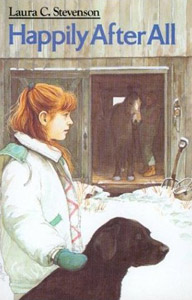A New Series: One Minute Reviews of
Books by Vermont Authors
Laura's column "One Minute Reviews" has appeared bi-weekly in Wilmington, Vermont's Deerfield Valley News since 2015. In April 2018, she found that no Vermont periodical consistently reviews all commercially published fiction and non-fiction by Vermont authors, so she started a series to fill that void. Published reviews from that series and some earlier reviews of local authors are listed with links to a scan of the printed copy. Reviews still in queue are listed without links until they appear in print.
The books reviewed in this series are available through Wilmington's Pettee Memorial Library, the Whitingham Free Public Library, and locally owned Bartleby's Books in Wilmington.
Deerfield Valley News, 10/30/2025
Louis Sachar, The Magician of Tiger Castle. Ace, 2025
Louis Sachar, a prolific author of children’s fiction, is best known for Holes, which won both the National Book Award and the Newbery Award in the late 1990s. Holes’ witty, slightly postmodern tale and its treatment of social [in]justice quickly earned it a reputation as a children’s book with breakthrough adult overtones, and it has remained a classic for a quarter century. Its earliest readers were also the earliest readers of Harry Potter—and now that they are pushing forty, Sachar has written them an adult novel with a nostalgic glance at the wizards of their childhoods.
Anatole, the narrator of the tale, is not a Rowling wizard. He’s an empiricist, a proto-scientist in the 1523 court of King Sandro and Queen Corinna, the rulers of Esquaveta, a European country somewhere near France. On the side, he is also a middle-aged father figure for Princess Tullia, of whom he, unlike her parents, is deeply fond. Tullia has been betrothed to Prince Dalrympl of Oxatania since she was three years old. Now she is finally old enough to marry him, just in time to forge a political alliance that will save Esquaveta from financial collapse. Unfortunately, Tullia has fallen in love with Pito, the recently hired apprentice court scribe; and only weeks before the Marriage of the Century, she refuses to marry the Prince. The King and Queen throw Pito into a dungeon and call on Anatole to conjure Tullia’s cooperation.
Anatole knows that success in this endeavor would save his national reputation, which is at its nadir because of his failure to prevent the country’s economic collapse by transforming its desperate import of black sand into gold. Yet, he shudders at the royal order to guarantee Tullia’s compliance by dosing her with poppy tears. Instead, he invents a memory potion that will make her forget that she and Pito ever met. To do this, of course, he must experiment with the potion’s effect by trying it on another person—and since Pito is immured in the dungeon and due to be executed at the pre-wedding banquet, he becomes the laboratory mouse. Thus begins Anatole’s friendship with Pito, who, during the tense countdown to Tullia’s wedding, turns out to be a brilliant scholar, a stoic, and an extraordinary chess player.
As is usual with Sachar’s villains, Prince Dalrympl is a thoroughly disgusting human being. He looks forward to having Pito beheaded “before dessert” in front of Tullia at the wedding banquet. He also looks forward throwing dissenters to the tiger that is one of his wedding presents to the Castle. To top it off, Anatole discovers that he is the unknown aristocrat who years ago made Babette, youthful Anatole’s sweetheart, clean his muddy shoes with her exquisitely-made lace—and fatally wounded her when she refused. And so, in addition to inventing a potion that will erase Tullia and Pito’s memories of each other, Anatole finds he must invent one that will prevent the alliance between Tullia and Dalrympl. His success earns him a reputation as the “Greatest Wizard In All The Land,” but it would be odd if all his complicated chemical and political tampering succeeded without “unintended consequences”… like war, flight, sanctuary, arrest and revenge.
In a recent interview, Sachar revealed that he had initially intended to write this book from the point of view of Pito and Tullia, but Anatole kept taking over the story. Finally, he decided to write the book for adults and let Anatole narrate it himself. His Anatole is a charming, witty, brilliant, cowardly, clumsy, totally bald middle-aged man, and more mysteriously, one that the reader gradually intuits is … er, long-lived. That’s another “unintended consequence” of a potion with a story of its own. The embraided tales, while short of the philosophical and literary depth of Holes, together create a good yarn for readers of all ages.


